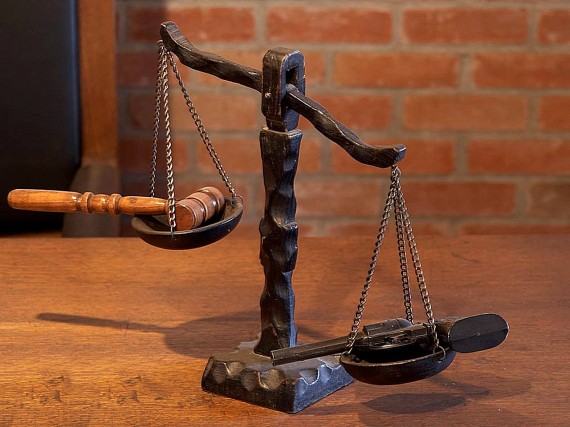When Innocent People Confess To Crimes They Didn’t Commit
Why do innocent people confess to crimes they didn't commit, and what should we do about it ?
Today’s New York Times covers a topic that we’ve only started to face recently thanks to the advent of DNA technology, why would an innocent person confess to a crime that they clearly didn’t commit:
KANSAS CITY, Mo. — Eddie Lowery lost 10 years of his life for a crime he did not commit. There was no physical evidence at his trial for rape, but one overwhelming factor put him away: he confessed.
At trial, the jury heard details that prosecutors insisted only the rapist could have known, including the fact that the rapist hit the 75-year-old victim in the head with the handle of a silver table knife he found in the house. DNA evidence would later show that another man committed the crime. But that vindication would come only years after Mr. Lowery had served his sentence and was paroled in 1991.
“I beat myself up a lot” about having confessed, Mr. Lowery said in a recent interview. “I thought I was the only dummy who did that.”
But more than 40 others have given confessions since 1976 that DNA evidence later showed were false, according to records compiled by Brandon L. Garrett, a professor at the University of Virginia School of Law. Experts have long known that some kinds of people — including the mentally impaired, the mentally ill, the young and the easily led — are the likeliest to be induced to confess. There are also people like Mr. Lowery, who says he was just pressed beyond endurance by persistent interrogators.
(…)
An article by Professor Garrett draws on trial transcripts, recorded confessions and other background materials to show how incriminating facts got into those confessions — by police introducing important facts about the case, whether intentionally or unintentionally, during the interrogation.
To defense lawyers, the new research is eye opening. “In the past, if somebody confessed, that was the end,” said Peter J. Neufeld, a founder of the Innocence Project, an organization based in Manhattan. “You couldn’t imagine going forward.”
The notion that such detailed confessions might be deemed voluntary because the defendants were not beaten or coerced suggests that courts should not simply look at whether confessions are voluntary, Mr. Neufeld said. “They should look at whether they are reliable.”
Professor Garrett said he was surprised by the complexity of the confessions he studied. “I expected, and think people intuitively think, that a false confession would look flimsy,” like someone saying simply, “I did it,” he said.
Instead, he said, “almost all of these confessions looked uncannily reliable,” rich in telling detail that almost inevitably had to come from the police. “I had known that in a couple of these cases, contamination could have occurred,” he said, using a term in police circles for introducing facts into the interrogation process. “I didn’t expect to see that almost all of them had been contaminated.”
Of the exonerated defendants in the Garrett study, 26 — more than half — were “mentally disabled,” under 18 at the time or both. Most were subjected to lengthy, high-pressure interrogations, and none had a lawyer present. Thirteen of them were taken to the crime scene.
Mr. Lowery’s case shows how contamination occurs. He had come under suspicion, he now believes, because he had been partying and ran his car into a parked car the night of the rape, generating a police report. Officers grilled him for more than seven hours, insisting from the start that he had committed the crime.
Mr. Lowery took a lie detector test to prove he was innocent, but the officers told him that he had failed it.
“I didn’t know any way out of that, except to tell them what they wanted to hear,” he recalled. “And then get a lawyer to prove my innocence.”
It sounds incredibly naive to you and me, for sure, but the truth of the matter is that in many of these cases you’re dealing with people who are naive, sometimes mentally ill, and, most importantly, not represented by an attorney when they’re being questioned by police.
The police, on the other hand, have the primary incentive of closing the case and have been authorized by Supreme Court precedent to engage in lying and trickery in order to obtain information from a suspect. They can tell a suspect that someone has already implicated them in a crime even if that never happened. They can tell a suspect that there are eyewitnesses who don’t exist. They can say that there is evidence implicating the suspect that doesn’t exist.
The presumption behind allowing the police to lie to suspects is that an innocent person would never confess to a crime that they didn’t commit. As we’ve seen, however, that clearly isn’t the case. Innocent people have confessed to crimes, and their attorneys, most likely court appointed, don’t bother to check into the veracity of the confessions. Fortunately, in cases with DNA evidence we’ve got a virtually foolproof method for determining someone’s guilt or innocence. Not every case involves DNA evidence, though, and in those cases there could be countless numbers of people sitting in jails for crimes they didn’t commit.







The only four words you should ever say to a cop is “I want my lawyer”.
I have the Lindbergh Baby.
Ooops!
All interrogations should be videotaped – with cheap and widely available equipment there is no excuse for not doing it – what is the downside for doing it if the police have nothing to hide?
This is not as true as some think it is. There is still a lot of interpretation done on the data, and the reported odds of finding a match in some cases has been wildly incorrect, sometimes off my several orders of magnitude.
Serious crimes are not the only ones people confess or plead no contest to. Many Officers are often experience and good at writing reports that make the person look guilty as hell. The court system often is design where you can’t question certain evidence because that technology has been deem as reliable and such.
Pleading guilty to a lesser crime or no contest will result in a far lesser punishment. Gamble with a not guilty plea can get you in real trouble. IMO our justice system is no longer concern with justice but being expedient.
What Mike said, video taping the interrogations, there is no excuse not to do it, IMO since it can prevent this kind of thing by showing everyone what happened exactly during the interrogation. And like Wayne has said, police and prosecutors fight tooth and nail against it….in other words we don’t have a “criminal justice system” but a legal system that is about processing people as if they were cattle vs. finding the guilty and bringing about justice.
Attorneys don’t check into the confessions? Can you provide evidence of this claim? If this is true, that’s a scandal in and of itself.
However, I suspect that it’s rarely true.